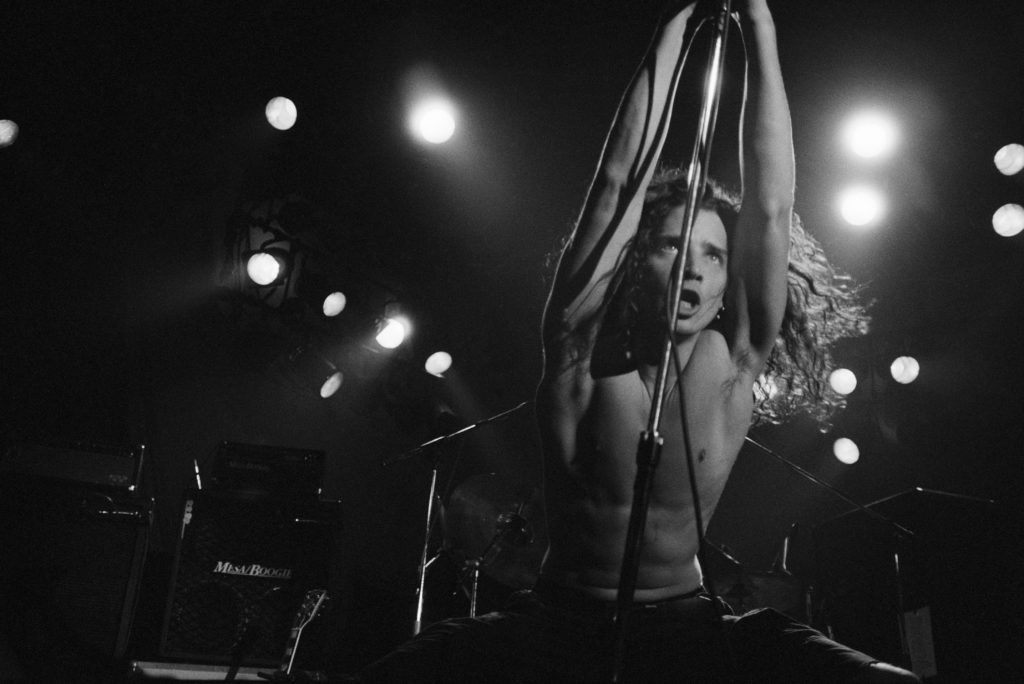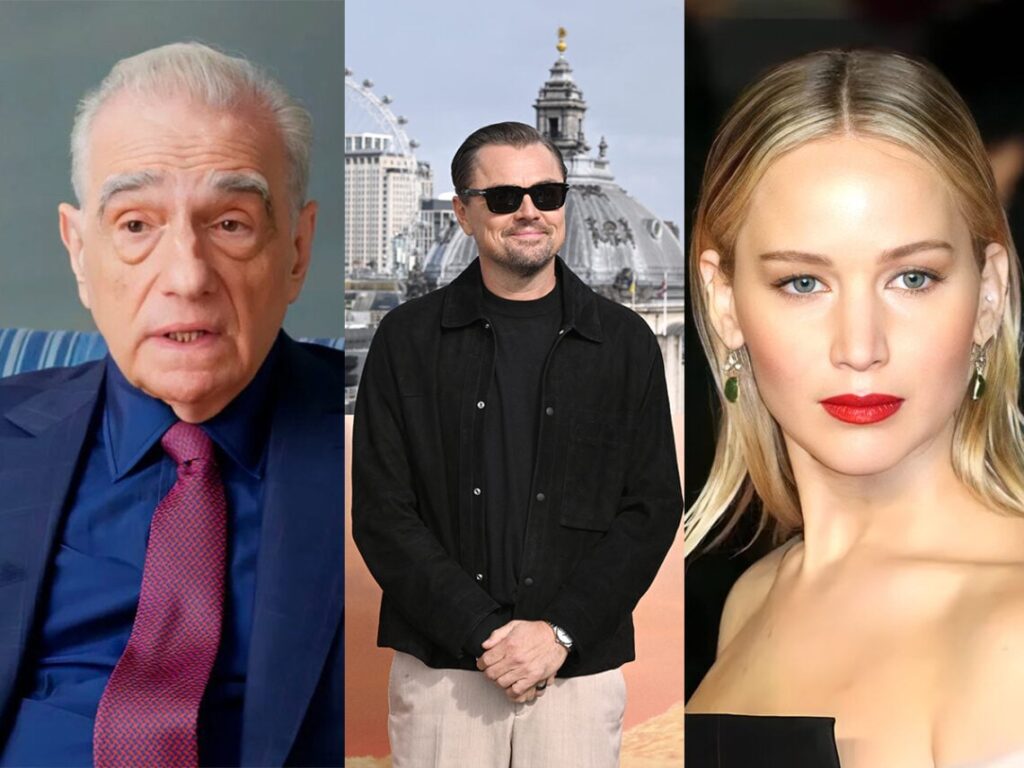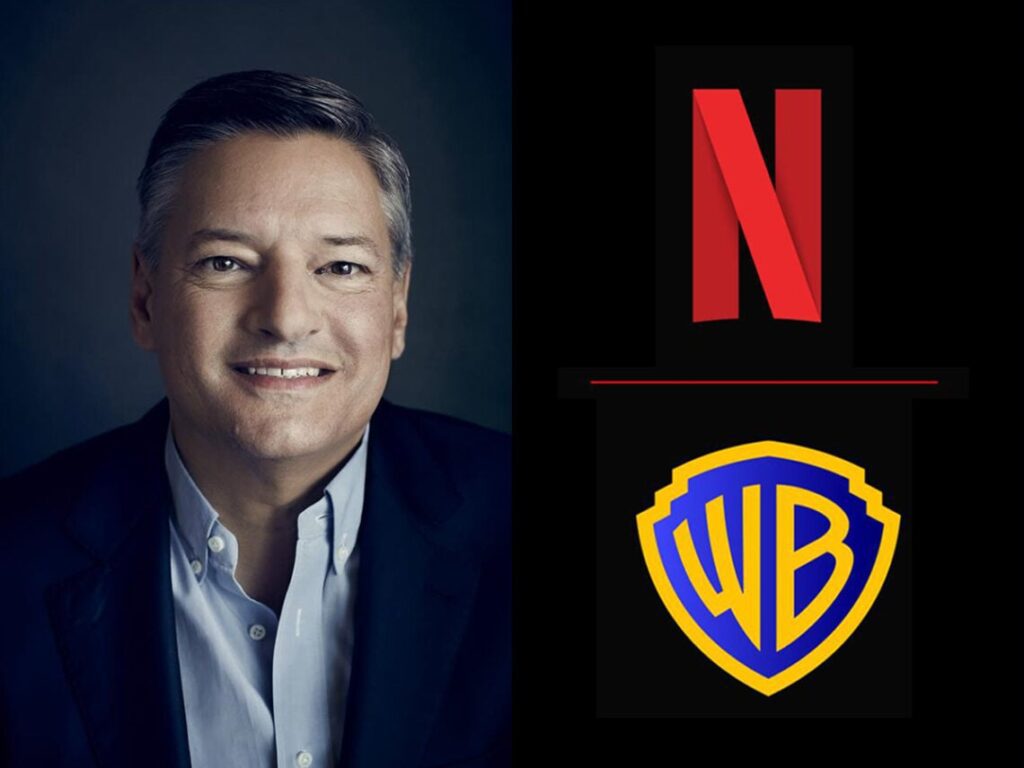The Story Behind the Soundgarden Concert That Helped Launched Sub Pop Records
 Posted On
Posted On
(Editor’s note: Total F*king Godhead, author Corbin Reiff’s outstanding new biography on Chris Cornell is out tomorrow. Ahead of its release, we’re sharing a blurb on how Soundgarden’s 1985 concert in Seattle helped spur on Sub Pop Records. Before that, Reiff gives some background to how that all went down)
You really can’t tell the story of Soundgarden and Chris Cornell without talking about the genesis of Sub Pop Records. You also can’t recount the expansive history of Sub Pop without acknowledging the important role that Soundgarden played in getting that label off the ground. One of the very first releases that Sub Pop ever put out was Soundgarden’s first single, “Hunted Down / “Nothing to Say” in July 1987, followed just a few months later by the band’s six-track, debut EP Screaming Life. Limited to 500 copies initially and pressed into a subdued orange vinyl, “Hunted Down” served as a savage, riff-riddled introduction to Soundgarden’s heavy aesthetic.
Before Sub Pop became the launching pad for some of the most culturally impactful artists in American musical history, it began as an underground fanzine penned by a Chicago-born transplant to the Pacific Northwest named Bruce Pavitt. Pavitt had long been friends with Soundgarden’s guitarist Kim Thayil, who once played in a band called Identity Crisis with Pavitt’s younger brother John while they both lived in the Midwest. Once Pavitt started putting out tapes and records under the Sub Pop name, it only made sense that he and Thayil might work together on something. The only problem was that while Pavitt had the credibility and connections within the world of indie rock, he didn’t have the funds to make it happen. That’s when another Midwest transplant to Seattle, a guy named Jonathan Poneman, entered the picture.
Poneman was one of Soundgarden’s earliest and most dedicated fans. It all started with a gig he happened to catch early on in the band’s career at the Rainbow Tavern near the University of Washington in Seattle. After that night, he came away convinced that he had to do whatever he could to help this group put out a record. He ultimately partnered with Pavitt and put up $20,000 of his own money to help Chris and the band realize their dreams.
While researching my book Total F*cking Godhead: The Biography of Chris Cornell, I swung by Sub Pop headquarters and sat down with Poneman to interview him about his memories of Chris, Soundgarden, and that fateful night that changed the music scene in Seattle forever. Here it is, recounted below:
It was an unseasonably chilly evening in Seattle on July 30, 1985. Having just finished band practice, Jonathan Poneman was driving his buddy Mark home when he decided to swing through the University District to settle up with the promoter of a small venue named the (Fabulous) Rainbow Tavern.
Poneman had recently moved from Toledo, Ohio, and enrolled at the University of Washington where he landed a role as one of the DJs for the college’s Audioasis hour on KCMU. To help raise funds for the station, he started booking and promoting a weekly showcase of local bands at the Rainbow. It was a good look for the station, building a tangible link between themselves and the musicians within the local music scene. It was also a good look for the Rainbow who figured that whatever young band might play that typically sleepy weekday evening would bring in at least a few dozen of their friends eager to spend their money on drinks.
Through the large window at the front of the venue, Poneman could see the opening band Skin Yard was onstage. He liked what he heard, and was especially taken by their drummer, a kid named Matt Cameron who was playing out of his mind. “I thought, ‘This is a guy who’s a cut above everyone else,’” Poneman said. “The guitar player was good, the bass player was good, but the drummer was really great.” Skin Yard’s singer Ben McMillan, also a KCMU DJ, had lobbied Poneman hard for this Tuesday night slot and was glad to get it, but he also had an added request. “He said, ‘Would you entertain putting on a show with my band and K-Clone’s band?’”
K-Clone was another on-air talent at KCMU: the alter-ego of Kim Thayil. His band had only been together for about seven months and didn’t even have a single out yet. “I didn’t know Kim, I just knew him as his air name,” Poneman said. “I remember Ben mentioning Hiro from the Altered was in this band, and I used to like the Altered.” McMillan’s co-sign, along with his affinity for Hiro Yamamoto’s other group, was enough for Poneman to add Soundgarden to the bill, despite their hippie-dippy name.
Soundgarden hit the stage after Skin Yard, and Poneman hung around for a bit to hear K-Clone and Yamamoto for himself. A few dozen people seated in chairs dotting the floor watched the four-piece group as they launched into their rage-fueled set. They opened with “No Wrong No Right,” and Poneman’s eyes widened. Brimming with menace and stacked frenetic guitar runs, this was about as far from shoe-gazing hip- pie jams as it got.
Yamamoto and Thayil concocted an impressive cacophony, but Poneman couldn’t take his eyes off the young lead singer. Chris Cornell was unlike anything he’d ever seen before. He was a total rock star in the making, with more raw, untapped talent and charisma than any of his local peers could ever hope to have. “Chris was bare-chested, as he was apt to be,” Poneman recalled. “He was buff and had one of those teenager mustaches. He kinda reminded me of a high school football player on a PCP bender. He didn’t look like he belonged there, but his voice was incredible. His stage presence was unbelievable.”
Poneman ended up staying for the entire set. When it was over, he raced to say hello to the band. “I walked up to the front of the stage after and introduced myself to Chris, and I said, ‘My name is Jonathan, I’m the host of Audioasis and I do the booking down here, and I gotta tell you, that was one of the best shows I’ve seen in my whole life.’” Chris listened thoughtfully as Poneman gushed over his singing, his music, and his band. “I remember him sitting there, nodding his head and smiling, saying ‘That’s great!’”
Soundgarden hadn’t even played ten shows together, and even this small bit of encouragement from someone like Poneman meant a lot. “He was the first person to me that planted that seed that, ‘You guys will be the future of rock music,’” Chris remembered. “You guys will be playing huge places. You guys will be the ones on commercial rock radio stations that kids listen to in their Camaros.”1
That show at the Tavern that brusque summer night began as just another gig for Soundgarden. Chris had no way of knowing that the guy who booked them, sight unseen, would start up a record label of his own called Sub Pop. He had no way of knowing that Poneman would ultimately use Soundgarden as a critical springboard to showcase the best rock and roll the Pacific Northwest had to offer the world. To bor- row a phrase from Bruce Springsteen’s legendary manager Jon Landau, Poneman glimpsed the future of rock and roll that night at the Rainbow, and its name was Soundgarden.
“When I went into that Rainbow show, I was a struggling musician,” he said. “When I walked out of that Rainbow show, I was a struggling someday-to-be record-label head. When you confront that sort of brilliance, you just go, ‘Wow!’”
From the book TOTAL F*CKING GODHEAD: THE BIOGRAPHY OF CHRIS CORNELL by Corbin Reiff. c 2020 by Corbin Reiff. Reprinted by permission Post Hill Press.
1 “Interview With Chris Cornell Part I,” YouTube, HardDrive Radio, June 4, 2014, https://www.youtube.com/watch?v=oYejbFOKz5U.



